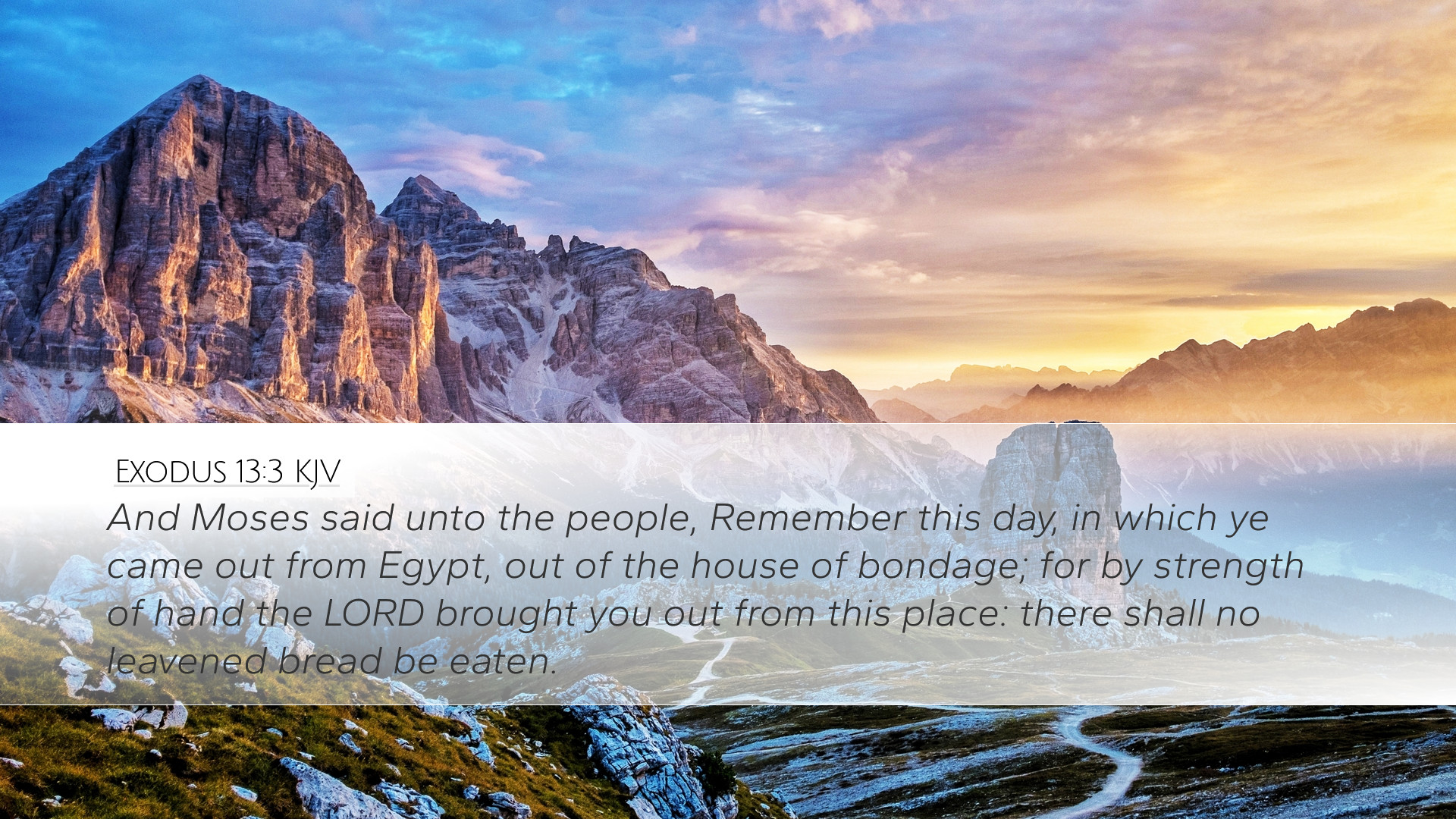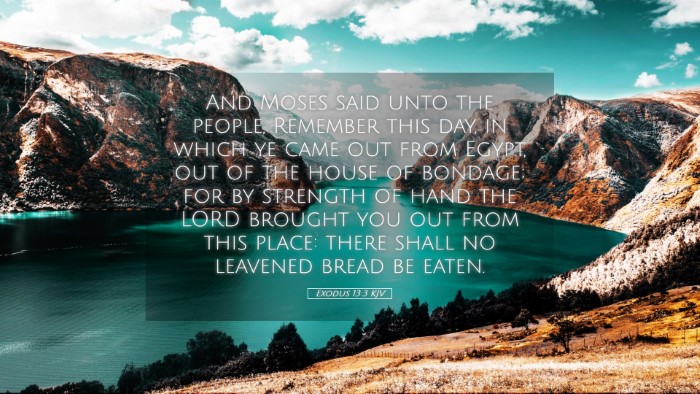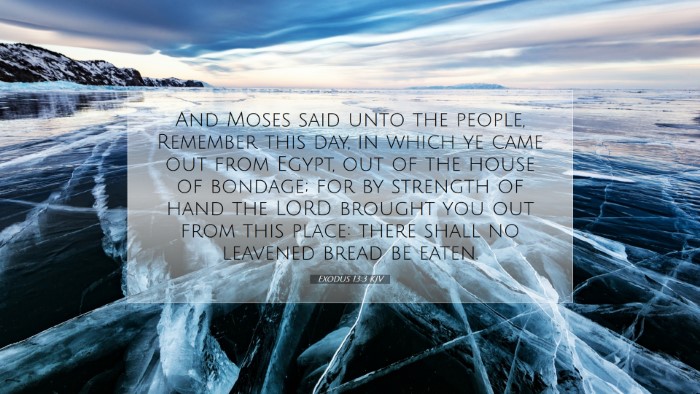Exodus 13:3 - Commentary and Insights
Verse Text: "And Moses said to the people, 'Remember this day in which you went out of Egypt, out of the house of bondage; for by strength of hand the Lord brought you out of this place. There shall be no leavened bread eaten.'
Introduction
The verse Exodus 13:3 emphasizes remembering the deliverance from Egypt, a pivotal moment in Israeli history. This moment captures the essence of God's redemptive power and the importance of remembering His acts in our lives.
Historical Context
In this passage, Moses addresses the Israelites just before their liberation from Pharaoh's oppression. The remembrance of this day is not merely for historical observance but is deeply rooted in spiritual significance, calling upon future generations to understand their identity as a people liberated by God.
Insights from Public Domain Commentaries
Matthew Henry's Commentary
Matthew Henry highlights the command to remember as a crucial aspect of faith. Forgetfulness can lead to a lack of appreciation for God's grace. He notes:
- **The Importance of Memory**: It is vital for the Israelites to remember their past deliverance to instill a sense of gratitude and continual recognition of God's merciful interventions.
- **House of Bondage**: He remarks on the reality of bondage and the Lord's mighty hand in their deliverance, reminding the faithful of the gravity of sin and the liberating power of God.
Albert Barnes' Notes on the Bible
Albert Barnes provides further theological implications of this verse. He outlines several critical points:
- **Historical Significance**: Barnes underscores the significant transformation that occurred when the Israelites left Egypt, asserting that the exodus is a foundational event not only for the Jewish people but also holds typological significance in Christian theology.
- **A Call to Action**: He suggests the call to remember serves as both a celebration of past events and a motivator for righteous living moving forward: the remembrance of God's acts must be an impetus to remain faithful and obedient.
Adam Clarke's Commentary
Adam Clarke expands on the ritual aspects associated with remembrance:
- **Symbolism of Leaven**: Clarke discusses the avoidance of leavened bread during the Passover as a representation of purity and separation from sin, symbolizing their new life away from Egypt's corruption.
- **Generational Transmission**: He emphasizes the role of memory in spiritual pedagogy, where parents must instill the significance of this day into their children, perpetuating faith through generations.
Theological Reflections
This verse serves as a critical reminder for contemporary readers—pastors, theologians, and students of the Bible—concerning the nature of remembrance in faith. Remembrance acts as:
- A catalyst for worship: By recounting God's past mercies, worship becomes informed and passionate.
- A foundation for hope: Understanding the past provides assurance for God's current and future providence.
- A call to holiness: Recognizing deliverance challenges believers to live lives characterized by holiness and obedience as reflective of their liberator.
Practical Applications
Pastors and leaders can draw upon this verse to shape worship practices and sermons around the theme of divine deliverance. Here are a few applications:
- Regular Observances: Instituting regular commemorative practices within the church can help congregants remember key aspects of salvation history.
- Teaching Opportunities: Families should be encouraged to engage in discussions about God’s past faithfulness, creating a legacy of gratitude.
- Personal Reflection: Individual believers might consider journaling experiences of God’s deliverance in their lives, fostering a deeper personal relationship with Him.
Conclusion
Exodus 13:3 serves as a rich source of theological insight and practical application. It invites believers to recognize and remember God's powerful acts of deliverance, which is pivotal not just for the Israelites, but for all who seek to understand their identity in light of salvation history. Remembering is integral to spiritual growth, community identity, and our ongoing relationship with God.


